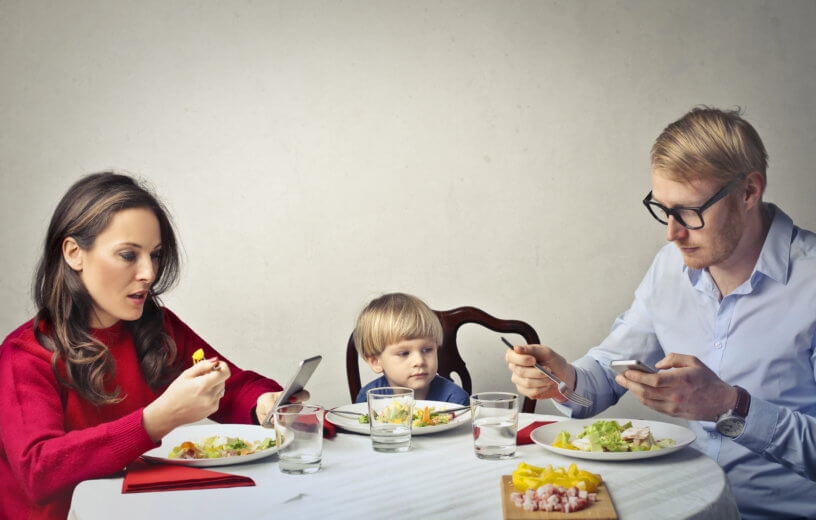Alarming new research reveals that the average parent spends just 24 minutes more per day with their children than they do with their smartphone!
NEW YORK — A common stereotype these days is the concerned parent demanding their child or teen put down their smartphone for some quality family time. Well, surprisingly, a new survey of 2,000 U.S. parents of school-aged children (ages 5-18) has revealed that half of respondents have been asked by their own child to put their phone away.
At least, it seems, many parents are aware that this is an issue; 62% of surveyed parents admitted that they spend too much time on their phones while in the presence of their children.
The survey, commissioned by child play foundation The Genius of Play, also found that a staggering 69% of parents feel “addicted” to their smartphones. In fact, most parents are so enthralled with their pocket-sized devices that they only spend 24 minutes more per day with their children as they do with their phone! On average, respondents spend two hours and 17 minutes on their phone each day, and two hours and 41 minutes of screen-free time with their children on a daily basis.
Despite the excessive amount of time many parents spend on their phones, 74% of respondents reported frequently worrying that their child spends too much time in front of screens. On a similar note, 65% of surveyed parents have instituted some type of limit on their child’s daily screen time. Still, on average, respondents said their children usually spend around two hours everyday staring at a screen.
Interestingly, while moms and dads are often concerned by their children’s use of smartphones and tablets, the majority also said that these devices are essential parenting tools. In all, 83% of respondents said that screens and technology are “necessary” to raise a child in today’s day and age. Many surveyed parents said they use these devices to keep their kids occupied (58%), as a reward (53%), or to calm their child down when they become agitated (52%). Most parents (63%) also use the threat of taking away screen time as a punishment.
At the end of the day, though, 83% still said they believe it is important to get together as a family and spend some time together without any screens.
“Whether you have a 2 year old or a 14 year old, it is important that all children experience various forms of play to stimulate their growing bodies and minds,” says Ken Seiter, the EVP of Marketing Communications at The Toy Association, the organization behind The Genius of Play, in a statement. “Of course, playing on devices can make up some of that playtime, but parents should be mindful of the balance.”
About eight in ten parents even believe that they would have a better relationship with their kids if the whole family spent less time on their phones. If that were to happen, respondents said they would use that extra time to start a hobby with their children (56%), play together (54%), and go outside for an activity (54%).
The most common screen time rules put in place by respondents for their children were: limited overall screen time (65%), routinely checking up on their children to see what they are viewing (57%), only allowing their children to watch educational content (55%), no phones during dinner (53%), and no screen time before bed (44%).
Each parent was also asked about their top priorities regarding raising their children. The number one response was to provide a good education (59%), followed by ensuring their children’s physical health (53%), ensuring a happy childhood (44%), teaching social skills (43%), and teaching career-oriented skills (38%).
The survey was conducted by OnePoll.
